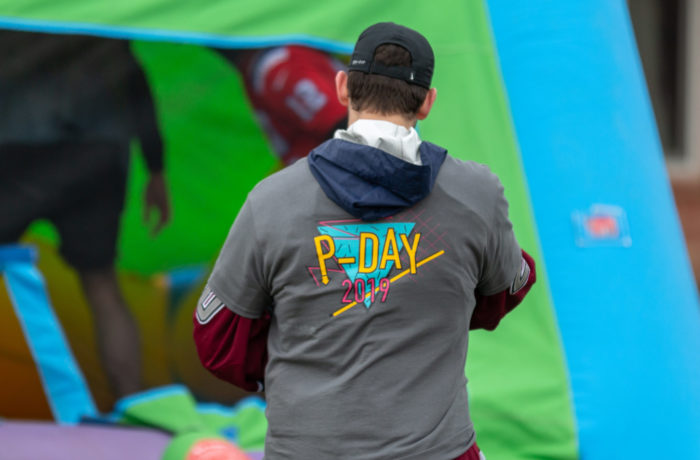Since he was a child, Peter Hope, an instructor of Biology at St. Michael’s College, has been intrigued by amphibians, birds, insects, frogs, and all the other organisms that reside in the forest.
“I have been worried about global warming since I was eight years old when I would read about it in my weekly reader.”

Students who have taken his Intro to Ecology and Evolution course are all too aware that Hope still carries that passion for nature and the great outdoors with him today.
He remembers the sadness he felt when a magnolia tree near the St. Michael’s post office was cut down before Dion was constructed. He knows where the first flowers of the spring can be found — this year, he discovered tiny, little mustards growing above the septic tank near the library on March 1.
Hope can often be found walking around campus with his camera and taking notes in his journal on the organisms and different species that inhabit the St. Michael’s grounds.
He sat down to talk about spring in Vermont, his love for nature, the current state of climate change, and his thoughts on the future of the environment.
Q: How does spring in Vermont compare to other areas in the country?
A: It’s short because when it warms up, it takes a long time getting here, and usually goes quick, and then we’re in the summer with 70s and warmth. I love the period before the trees totally leaf out, and we get more life on the forest floor – that’s when the forest floor is the most abundant, and it’s one of the things that really turned me on to becoming a botanist with the amazing variety of spring flowers on the forest floor. I love Vermont, and I love the changing of the seasons, but I wish we had a little bit longer, drawn out spring.
Q: I have heard that you have a journal that you record information in. What kinds of information do you record?
A: We actually had a magnolia tree near the post office that they cut down when they up the Dion Student Center that I kept track of showing how the temperatures kept getting warmer. I kept track of it since 2001, and it’s range from 2001-2008 was only from 17th of April to the 28th, which was only 11 days when the first flowers came. We had a really warm 2010, and it was 12 days earlier than it ever had been. Then, two years later, we had an abnormally warm March and it was 14 days warmer than this one, which is a total of 26 days earlier than the original range.
Q: Are there any spots on campus that you like to explore?
A: I keep track of the silver maples behind the library when I go to the fitness center three times a week. It hasn’t changed that much. I would go over to [the magnolia tree] every day.
Q: What are some other things that you do when you observe nature?
A: I keep track of when the birds come back, the migration of birds. The first official day of spring is when I hear peepers, wood frogs, and amphibians. I keep track in my field notes the flowers and note if it’s way earlier or not.
Q: What are some other changes that occur in the spring that most are not aware about?
A: The number of birds are down. A recent study came out in Vermont that estimates that the bird populations in about 25 years have decreased over 14 percent. Climate change is probably a big part of it. Also, human population growth and fragmentation of forests.
Q: How do you exactly define climate change?
A: Climate change is a better term than global warming because most places are getting warmer, but some of the really problematic things are the changes in climate. For instance, if an area we count on for growing food, like California, that doesn’t get any rain or snow and doesn’t get any water, that will have a huge impact on humans. There’s climate change that’s man-made and the climate change that’s been going on ever since the planet’s been here. The climate change I’m worried about is what most scientists believe humans are adding and contributing to the current change in temperatures.
Q: Are you frightened for the future?
A: We are going to lose a lot of species, we are going to lose and change a lot of ecosystems, and I believe eventually that it’ll get so bad that deniers of it will say we have to do something about it. The sooner we do it the less we lose. That’s one of the reasons why I didn’t take the buyout. I want to keep teaching people who are business majors, economic majors, and all inter-disciplinary people to take a knowledge of climate change with them in their jobs for sustainable economic endeavors.
Q: What can students do to make a difference?
A: Students can become informed and stand up for what they believe in.
GreenUp is great, they do a lot of things. Instead of Earth Day, they had an Earth Month in April with different outdoor themes. Students need to be consistent with their knowledge, so whatever
decisions they make in their personal lives and work life is consistent with becoming a part of the solution.



